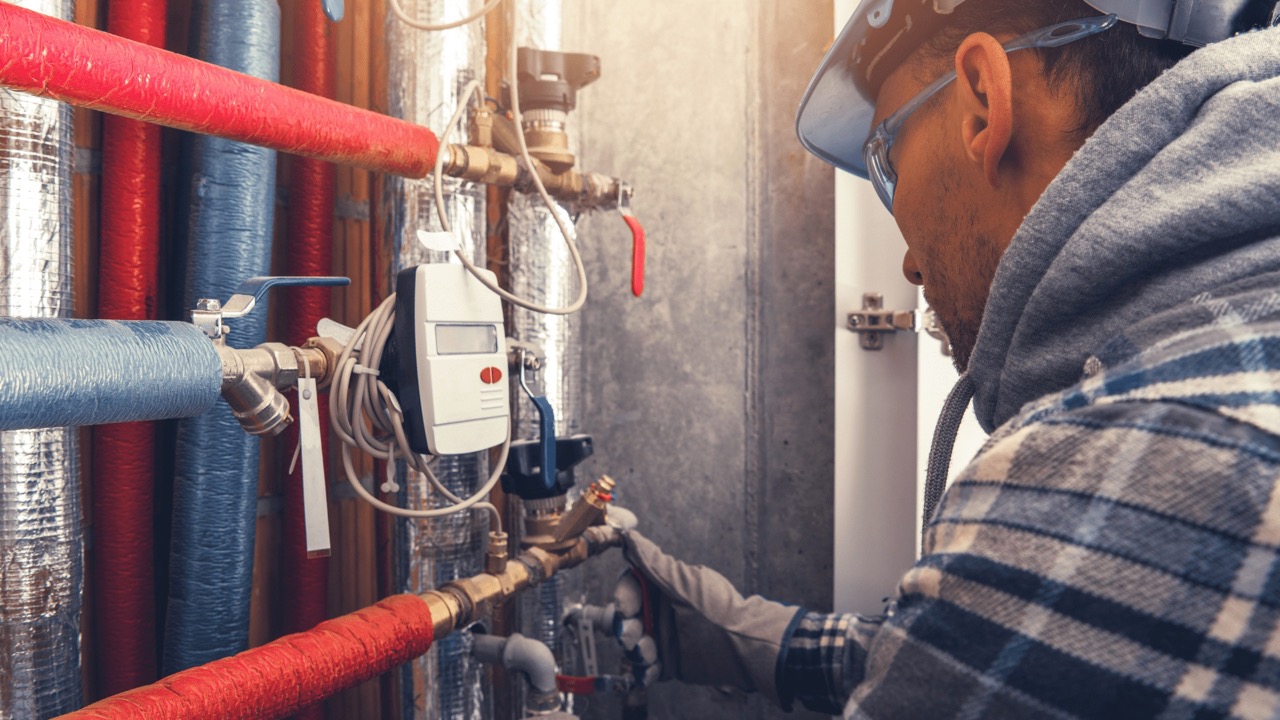

Articles
What Is A HVAC Contractor
Modified: October 28, 2024
Looking for articles about HVAC contractors? Learn what HVAC contractors do and how to find the right one for your needs. Get expert advice and tips in our informative articles.
(Many of the links in this article redirect to a specific reviewed product. Your purchase of these products through affiliate links helps to generate commission for Storables.com, at no extra cost. Learn more)
Introduction
Welcome to the world of HVAC contractors! As homeowners, business owners, or simply individuals seeking comfort in their living or working spaces, we all rely on heating, ventilation, and air conditioning systems. These systems keep us warm in the winter, cool in the summer, and ensure fresh, clean air throughout the year.
But have you ever wondered who takes care of these complex systems? Who installs, repairs, and maintains the heating and cooling units that keep our spaces comfortable? That’s where HVAC contractors come in.
HVAC contractors, short for Heating, Ventilation, and Air Conditioning contractors, are trained professionals who specialize in the installation, repair, and maintenance of HVAC systems. They play a crucial role in ensuring that our homes, offices, and other buildings are equipped with efficient and reliable heating and cooling systems.
In this article, we will explore the world of HVAC contractors, their roles and responsibilities, the importance of hiring a skilled contractor, and factors to consider when choosing one.
So, let’s dive deeper into the fascinating world of HVAC contractors and discover why they are an integral part of our lives.
Key Takeaways:
- HVAC contractors are essential for maintaining comfortable indoor environments. They specialize in installation, repair, and maintenance of HVAC systems, ensuring optimal performance and energy efficiency in residential and commercial spaces.
- Becoming an HVAC contractor requires education, training, and licensure. Contractors play a crucial role in ensuring proper HVAC system operation, energy efficiency, and indoor air quality, benefiting both individuals and businesses.
Definition of HVAC Contractor
An HVAC contractor is a professional who specializes in the installation, repair, and maintenance of heating, ventilation, and air conditioning systems. They are responsible for ensuring that these systems operate efficiently and effectively, providing comfort and maintaining indoor air quality in various residential, commercial, and industrial settings.
HVAC contractors are trained and experienced in working with a wide range of HVAC equipment, including furnaces, boilers, air conditioners, heat pumps, ductwork, and ventilation systems. They are knowledgeable about the mechanical, electrical, and plumbing aspects of these systems, enabling them to handle both installation and repair tasks with expertise and precision.
When it comes to installation, HVAC contractors work closely with architects, builders, and other professionals to design and implement HVAC systems that meet the specific needs and requirements of a building. They calculate heating and cooling loads, choose the appropriate equipment, and ensure proper sizing and installation of ductwork and ventilation systems. This ensures optimal performance and energy efficiency of the HVAC system.
In terms of repair and maintenance, HVAC contractors are skilled at identifying and resolving a wide range of issues that may arise within HVAC systems. They are proficient in troubleshooting problems, conducting inspections, cleaning and servicing components, and replacing faulty parts when necessary. By regularly servicing and maintaining HVAC systems, contractors help prolong their lifespan, improve energy efficiency, and prevent costly breakdowns.
It is important to note that HVAC contractors may specialize in specific areas within the field. This could include focusing on residential systems, commercial systems, industrial systems, or even specializing in specific brands or types of equipment. Specialization allows contractors to develop a deeper understanding and expertise in a specific area, providing higher quality service and solutions to clients.
In summary, HVAC contractors are skilled professionals who specialize in the installation, repair, and maintenance of HVAC systems. They are experts in ensuring optimal performance, energy efficiency, and comfort in both residential and commercial settings.
Roles and Responsibilities of HVAC Contractors
HVAC contractors play a crucial role in ensuring the proper functioning and longevity of heating, ventilation, and air conditioning systems. Their responsibilities span a wide range of tasks, from installation to repair and maintenance. Here are the key roles and responsibilities of HVAC contractors:
- Installation: HVAC contractors are responsible for the proper installation of HVAC systems. This includes assessing the needs of the building, calculating heating and cooling loads, selecting appropriate equipment, and installing ductwork and ventilation systems. They ensure that the system is properly sized, meets regulatory standards, and operates efficiently.
- Repair and Maintenance: HVAC contractors are skilled at identifying and resolving issues within HVAC systems. They conduct inspections, diagnose problems, and perform necessary repairs, such as fixing faulty components, replacing worn-out parts, or resealing ductwork. Regular maintenance is also part of their responsibilities, which includes cleaning filters, lubricating moving parts, and checking for leaks or inefficiencies.
- Upgrades and Retrofitting: As technologies evolve and new energy-efficient options become available, HVAC contractors can provide guidance on system upgrades or retrofits. They can assess the existing system and recommend upgrades that improve energy efficiency, reduce operating costs, and enhance overall performance. This may involve replacing outdated equipment, integrating smart thermostats, or implementing zoned HVAC systems.
- Consultation and Design: HVAC contractors often work closely with architects, engineers, and building owners during the design phase of a construction project. They provide expert advice on HVAC system design, assess ventilation needs, and recommend the most suitable equipment and layout. Their input ensures that the system is efficient, meets local codes and regulations, and aligns with the building’s requirements.
- Indoor Air Quality: HVAC contractors are responsible for maintaining good indoor air quality. They ensure that HVAC systems are equipped with filters that remove dust, allergens, and other contaminants. They may also recommend additional measures like air purifiers or humidity control devices to improve air quality and create a healthier indoor environment.
- Emergency Services: HVAC contractors are available to respond to emergency service calls when HVAC systems fail or malfunction. They work quickly and efficiently to diagnose the problem and restore the system to proper working order. Their prompt response can prevent a minor issue from escalating into a major disruption.
In summary, HVAC contractors are responsible for the installation, repair, and maintenance of HVAC systems. They ensure proper functioning, energy efficiency, and indoor air quality in residential, commercial, and industrial buildings. Their expertise and knowledge are invaluable in keeping our environments comfortable and healthy.
HVAC Contractor Licensing and Certification
Obtaining the necessary licensing and certification is an important aspect of becoming a qualified HVAC contractor. It ensures that contractors have the knowledge, skills, and expertise required to handle the complex tasks involved in HVAC system installation, repair, and maintenance. Let’s explore the licensing and certification requirements for HVAC contractors:
Licensing: The specific licensing requirements for HVAC contractors vary depending on the country, state, or region. Typically, contractors need to meet certain criteria, such as minimum age, education, and work experience requirements. They may also need to pass a licensing exam that tests their knowledge of HVAC systems, building codes, safety regulations, and industry practices. Obtaining a license demonstrates that a contractor has met the necessary standards set by the regulatory authority and is legally allowed to work as an HVAC contractor.
Certification: In addition to licensing, HVAC contractors can pursue certification to further validate their expertise and differentiate themselves in the field. Certification is often offered by professional organizations or manufacturers and involves passing an exam that assesses knowledge and competency. Some common certifications for HVAC contractors include those offered by organizations such as North American Technician Excellence (NATE) and the Air Conditioning Contractors of America (ACCA). These certifications demonstrate a contractor’s proficiency in specific areas, such as air conditioning, heat pumps, gas furnaces, or commercial HVAC systems.
By obtaining the necessary licensing and certification, HVAC contractors showcase their commitment to professionalism, competence, and adherence to industry standards. It provides assurance to clients that they are working with qualified professionals who have the skills and knowledge needed to handle HVAC projects effectively and safely.
It’s important to note that licensing and certification requirements may also vary depending on the type of HVAC work being performed. For example, certain states or jurisdictions may have separate licenses for residential and commercial HVAC work, while others may have different licenses for installation and repair. It’s crucial for HVAC contractors to familiarize themselves with the specific requirements in their area and ensure compliance.
Continuing education is often required to maintain a license and certification. HVAC contractors must stay updated on the latest industry developments, technologies, and regulations through ongoing learning and professional development. This ensures that their knowledge and skills remain current, allowing them to provide the best possible services to their clients.
In summary, licensing and certification are important requirements for HVAC contractors. They demonstrate a contractor’s qualifications, knowledge, and commitment to professionalism. By meeting these requirements and continuing their education, HVAC contractors can build trust with clients and contribute to the overall quality and reliability of the HVAC industry.
Importance of Hiring an HVAC Contractor
When it comes to your heating, ventilation, and air conditioning (HVAC) system, it’s crucial to have a qualified and experienced HVAC contractor by your side. Hiring a professional contractor offers numerous benefits and ensures the optimal performance, efficiency, and longevity of your HVAC system. Let’s explore the importance of hiring an HVAC contractor:
Expertise and Knowledge: HVAC contractors have in-depth knowledge and expertise in all aspects of HVAC systems. They understand the complexities of different heating and cooling units, ventilation systems, and ductwork. Their knowledge allows them to accurately diagnose problems, provide effective solutions, and ensure efficient operation of your HVAC system. They are also familiar with local building codes, regulations, and energy efficiency standards, ensuring that your system meets all necessary requirements.
Proper Installation: One of the most critical aspects of your HVAC system is its installation. Improper installation can lead to a range of issues, including reduced efficiency, frequent breakdowns, and shortened system lifespan. HVAC contractors have the necessary skills, tools, and experience to ensure that your system is installed correctly. They can assess your space, select the right equipment, and install all components properly, optimizing the performance and reliability of your HVAC system.
Efficient Repairs: HVAC systems can experience various problems over time, ranging from mechanical issues to electrical faults. Attempting to repair HVAC systems without the proper knowledge and experience can lead to further damage. HVAC contractors have the expertise to diagnose issues accurately and provide efficient and effective repairs. They also have access to quality replacement parts and can ensure that the repaired components seamlessly integrate into your system.
Maintenance and Preventive Care: Regular maintenance is crucial for the smooth operation and longevity of your HVAC system. HVAC contractors offer maintenance services that include thorough inspections, cleaning, lubrication, and system optimization. By regularly maintaining your HVAC system, contractors can identify potential issues before they become major problems, saving you from expensive repairs or system replacements in the future.
Energy Efficiency: Energy efficiency is a significant concern when it comes to HVAC systems. A properly installed and maintained HVAC system operates more efficiently, reducing your energy consumption and lowering your utility bills. HVAC contractors can provide valuable advice on energy-saving options, such as programmable thermostats, zone control systems, or energy-efficient equipment. By optimizing your HVAC system’s efficiency, contractors help you save money and reduce your environmental impact.
Peace of Mind: Hiring an HVAC contractor provides peace of mind, knowing that your HVAC system is in the hands of professionals. Contractors ensure that your system is operating safely, reliably, and efficiently, allowing you to enjoy a comfortable and healthy indoor environment. They also stand behind their work, providing warranties and guaranteeing customer satisfaction.
In summary, hiring an HVAC contractor is essential for the proper installation, repair, maintenance, and optimization of your HVAC system. Their expertise, knowledge, and experience ensure that your system operates efficiently, saves energy, and provides you with the comfort you deserve. By investing in an HVAC contractor, you are investing in the long-term performance and reliability of your HVAC system.
When hiring a HVAC contractor, make sure they are licensed, insured, and have good references. It’s also important to get a written estimate and ask about their experience with your specific type of HVAC system.
Read more: What Do Construction Contractors Do
Factors to Consider when Choosing an HVAC Contractor
When it comes to selecting an HVAC contractor for your heating, ventilation, and air conditioning needs, it’s important to choose a reliable and reputable professional. Here are some key factors to consider when making your decision:
Experience and Expertise: Look for an HVAC contractor with several years of experience in the industry. Experience indicates that the contractor has successfully completed various projects and has a solid understanding of HVAC systems. Verify that they have specific expertise in the type of HVAC work you require, whether it’s residential, commercial, or industrial. An experienced contractor can handle complex tasks and provide effective solutions to meet your specific needs.
Licensing and Certification: Ensure that the HVAC contractor is appropriately licensed and certified. Licensing ensures that the contractor meets the necessary standards and is legally authorized to work in your area. Certification from reputable organizations, such as NATE or ACCA, indicates that the contractor has received additional training and has a commitment to ongoing professional development.
References and Recommendations: Ask for references from past clients and check online customer reviews. Positive reviews and recommendations indicate reliable and satisfactory service. Talk to friends, family, or neighbors who have recently had HVAC work done and ask for their recommendations. Word-of-mouth referrals can be a powerful indicator of a contractor’s quality of work and professionalism.
Insurance and Liability Coverage: Verify that the HVAC contractor has adequate liability insurance to protect against any damages or injuries that may occur during the project. This coverage gives you peace of mind and protects you from potential liability should an accident occur on your property.
Written Estimates and Contracts: Request written estimates from multiple contractors before making a final decision. This allows you to compare prices, services offered, and warranties included. Avoid contractors who provide verbal estimates or are hesitant to provide a detailed, written contract. The contract should clearly outline the scope of work, project timeline, materials and equipment to be used, payment terms, and any warranties or guarantees offered.
Availability and Responsiveness: Consider the contractor’s availability and responsiveness. You want a contractor who can accommodate your schedule and promptly respond to your inquiries or service requests. Communication is key throughout the project, so ensure the contractor is approachable, attentive, and communicates clearly and effectively.
Quality of Workmanship: Look for a contractor who is committed to delivering high-quality workmanship. They should use quality materials, have attention to detail, and adhere to industry standards. Ask for examples of their previous work or request to visit completed projects to assess the quality of their craftsmanship.
Customer Service and Support: Consider the level of customer service and support offered by the contractor. A reputable HVAC contractor should be committed to customer satisfaction and provide ongoing support after the completion of the project. They should be responsive to any issues or concerns that arise and be readily available for maintenance and service needs in the future.
By carefully considering these factors, you can select an HVAC contractor who meets your requirements, delivers excellent workmanship, and provides reliable and efficient services for your HVAC needs.
Common HVAC Services Offered by Contractors
HVAC contractors offer a wide range of services to ensure the proper functioning and maintenance of heating, ventilation, and air conditioning systems. These services are crucial in keeping your HVAC system running efficiently and providing optimal comfort in your home or business. Let’s explore some of the common HVAC services offered by contractors:
- Installation: HVAC contractors specialize in the installation of various types of HVAC systems. Whether you need a new furnace, air conditioner, heat pump, or ventilation system, contractors can assess your specific needs, recommend suitable equipment, and professionally install it for optimal performance and efficiency.
- Repair and Troubleshooting: HVAC systems can develop issues over time or experience unexpected breakdowns. HVAC contractors are skilled at diagnosing problems and providing effective repairs. From fixing faulty components and electrical connections to resolving airflow issues or refrigerant leaks, contractors can troubleshoot and restore your HVAC system to proper working condition.
- Maintenance and Tune-Up: Regular maintenance is crucial for the longevity and efficiency of your HVAC system. HVAC contractors offer maintenance programs to ensure that your system is operating at its best. This includes tasks such as cleaning or replacing air filters, lubricating moving parts, checking electrical connections, and optimizing system performance. Regular maintenance helps prevent costly breakdowns and ensures energy efficiency.
- Duct Cleaning and Sealing: Over time, dust, debris, and allergens can accumulate in your HVAC ductwork, affecting indoor air quality and system performance. HVAC contractors offer duct cleaning services to remove contaminants, improve airflow, and enhance air quality. They also provide duct sealing services to minimize air leaks, which can increase efficiency and reduce energy waste.
- Indoor Air Quality Improvement: HVAC contractors can assess and improve the indoor air quality of your home or business. They can recommend and install air purifiers, humidifiers, dehumidifiers, and ventilation systems to combat indoor air pollutants, control humidity levels, and maintain a healthy environment.
- Energy Efficiency Upgrades: HVAC contractors can help you make energy-efficient upgrades to your HVAC system. This includes replacing outdated equipment with high-efficiency models, installing programmable thermostats, or implementing zoning systems. These upgrades can significantly reduce energy consumption, lower utility bills, and lessen your environmental impact.
- Emergency Repairs: HVAC systems can fail at any time, leading to discomfort and inconvenience. HVAC contractors offer emergency repair services to quickly address system failures and restore comfort to your home or business. They understand the urgency of these situations and strive to provide prompt and reliable solutions.
These are just a few examples of the common HVAC services that contractors offer. Whether you need installation, repair, maintenance, or improvements to your HVAC system, consulting with a professional HVAC contractor ensures that your needs are met, and your system operates efficiently for years to come.
Steps to Becoming an HVAC Contractor
Becoming an HVAC contractor requires a combination of education, training, and hands-on experience. If you’re interested in pursuing a career in this field, here are the steps you can take to become an HVAC contractor:
- Earn a High School Diploma or Equivalent: A high school diploma or GED equivalent is typically the minimum educational requirement for becoming an HVAC contractor. It provides a foundation of basic knowledge and skills necessary for further education and training in the field.
- Get Formal Education or Training: Consider enrolling in a trade school or community college to earn a certificate or degree in HVAC technology. These programs provide comprehensive training in HVAC fundamentals, including electrical systems, refrigeration, airflow, HVAC design, and troubleshooting. Some programs also offer hands-on experience with equipment and systems commonly used in the industry.
- Complete an Apprenticeship: Participating in an apprenticeship program is a valuable way to gain practical experience and learn from experienced HVAC professionals. Apprenticeships typically last for a few years and involve a combination of on-the-job training and classroom instruction. This hands-on experience allows you to refine your skills and gain a deeper understanding of HVAC systems.
- Obtain Licensure: Check the licensing requirements in your state or jurisdiction and complete the necessary steps to obtain your HVAC contractor license. Requirements may include passing an exam that tests your knowledge of HVAC systems, building codes, and safety regulations. Some states may also require proof of work experience or completion of an apprenticeship program.
- Obtain Certification: While certification is not always required, it can enhance your credibility and job prospects. Consider obtaining certifications from industry-recognized organizations such as North American Technician Excellence (NATE) or the Air Conditioning Contractors of America (ACCA). These certifications validate your expertise and demonstrate your commitment to professional development.
- Gain Experience and Build a Network: Work for an established HVAC company or contractor to gain more experience and learn from seasoned professionals. This hands-on experience will help you refine your skills, build your reputation, and develop a network within the industry. Establishing relationships with suppliers, contractors, and clients can provide valuable opportunities for growth and future business.
- Continuing Education: Stay updated on the latest advancements in HVAC technology, regulations, and industry practices by participating in continuing education programs. This ensures that your skills and knowledge remain current and allows you to offer the best possible service to your clients. Continued learning also enhances your professional growth and opens doors to new opportunities within the HVAC field.
Remember that the specific requirements for becoming an HVAC contractor may vary depending on your location. It’s important to research and comply with the regulations and licensing requirements set by your local or state authorities.
By following these steps, you can embark on a rewarding career as an HVAC contractor and contribute to the comfort and well-being of individuals and businesses through your expertise in heating, ventilation, and air conditioning systems.
Conclusion
HVAC contractors play a crucial role in ensuring our comfort and well-being in residential, commercial, and industrial spaces. With their expertise in heating, ventilation, and air conditioning systems, they install, repair, and maintain HVAC units, ensuring efficient operation and optimal indoor air quality.
In this article, we explored the definition of HVAC contractors, their roles and responsibilities, the importance of hiring them, factors to consider when choosing a contractor, common services they offer, and the steps to becoming an HVAC contractor.
From installation to repair, maintenance to energy efficiency upgrades, HVAC contractors provide a range of services to keep our HVAC systems operating at their best. They are skilled professionals who possess knowledge of industry standards, codes, and regulations, ensuring that our HVAC systems meet the required standards and operate safely.
When choosing an HVAC contractor, factors such as experience, licensing and certification, references, and customer service should be considered. Hiring a reputable contractor gives us peace of mind, knowing that our HVAC system is in the hands of professionals who will provide quality workmanship, efficient repairs, and reliable maintenance services.
For those aspiring to enter the HVAC industry, the journey to becoming an HVAC contractor involves obtaining a high school diploma, pursuing formal education or training, completing an apprenticeship, obtaining licensure and certification, gaining experience, and continuing education.
In conclusion, HVAC contractors are essential for the proper functioning, efficiency, and longevity of our HVAC systems. Their knowledge and expertise ensure that our spaces are comfortable, healthy, and energy-efficient. By hiring a qualified HVAC contractor, we can enjoy the benefits of a well-maintained system that provides optimal comfort year-round.
So, when it comes to your HVAC needs, remember the importance of hiring an HVAC contractor who will provide trusted and reliable services to keep your HVAC system running smoothly for years to come.
Frequently Asked Questions about What Is A HVAC Contractor
Was this page helpful?
At Storables.com, we guarantee accurate and reliable information. Our content, validated by Expert Board Contributors, is crafted following stringent Editorial Policies. We're committed to providing you with well-researched, expert-backed insights for all your informational needs.


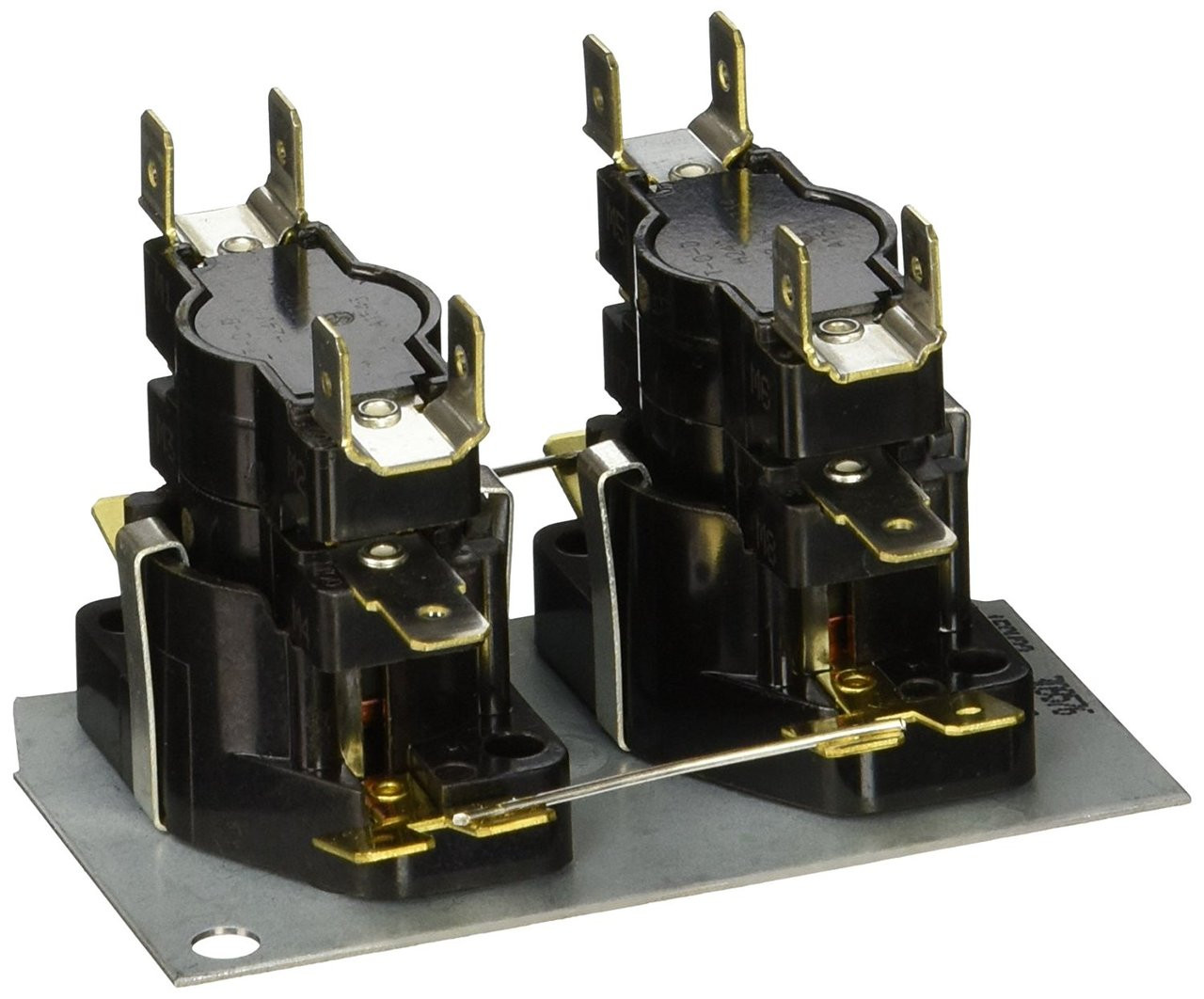
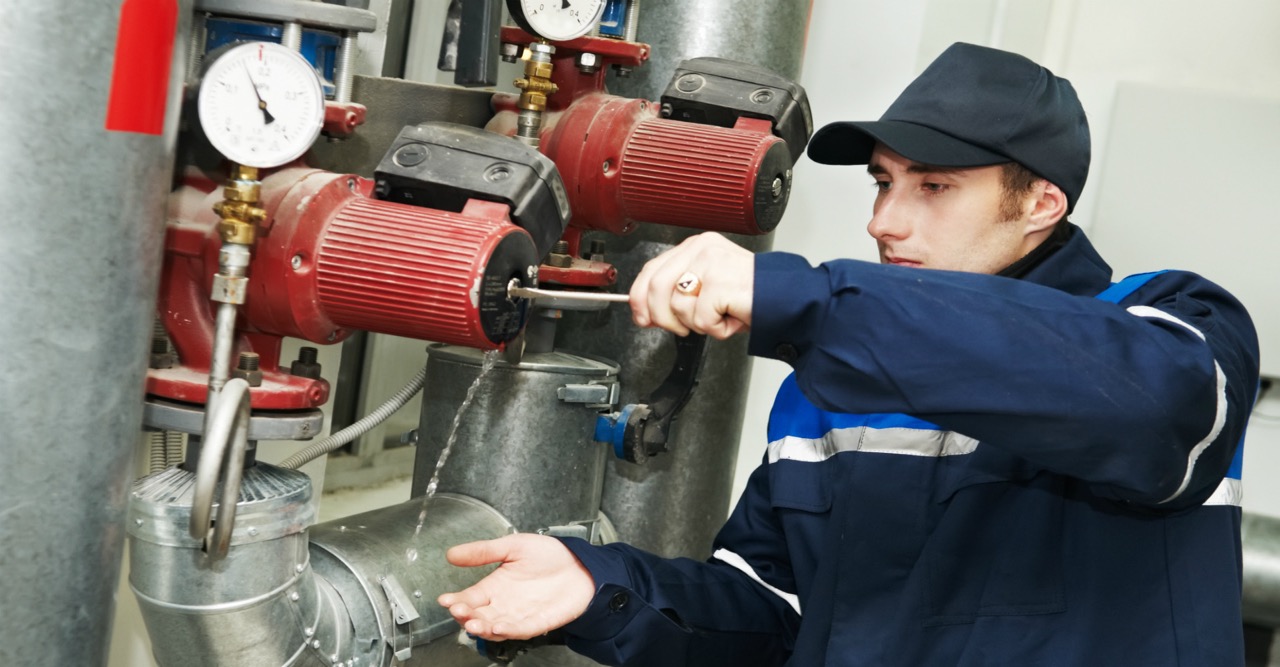
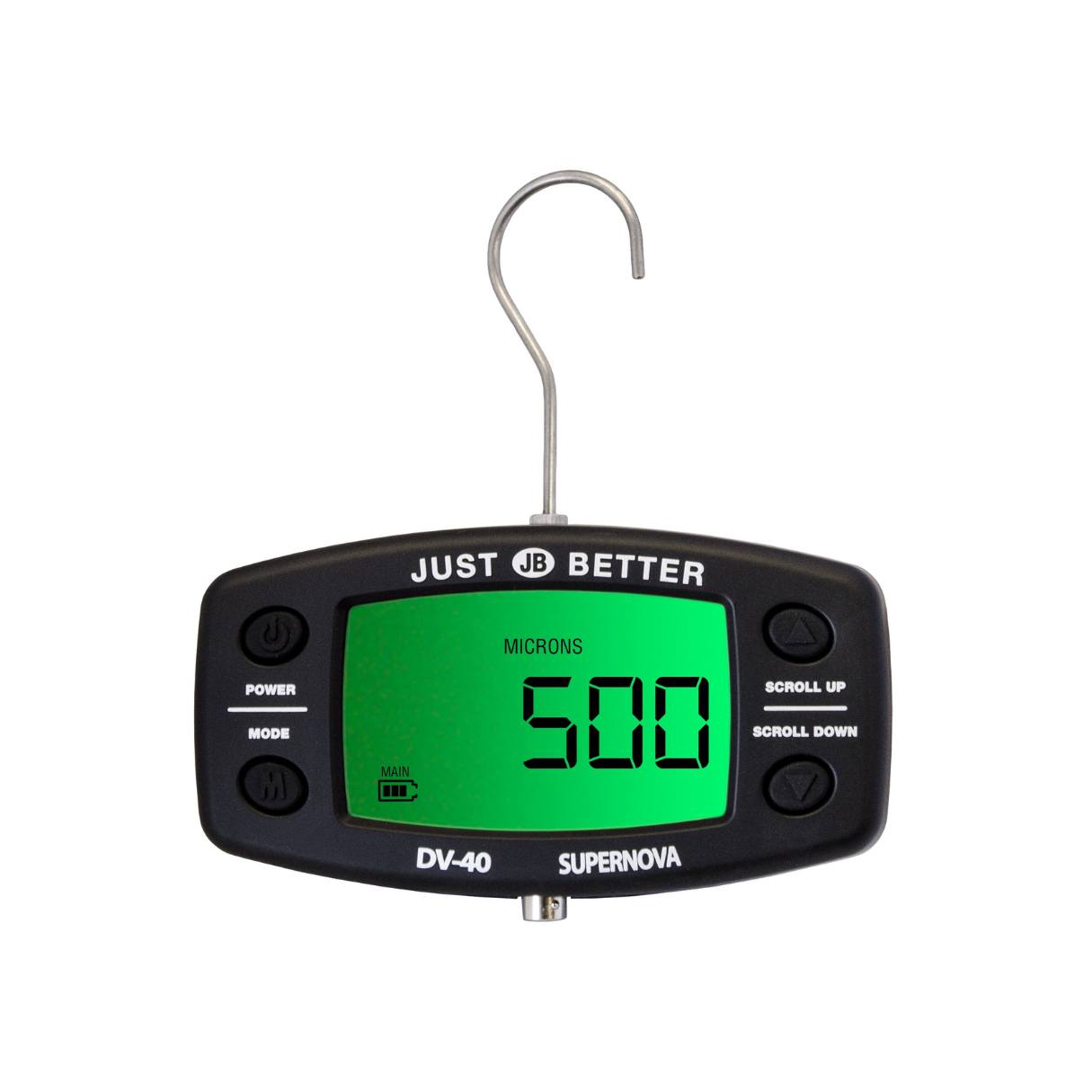


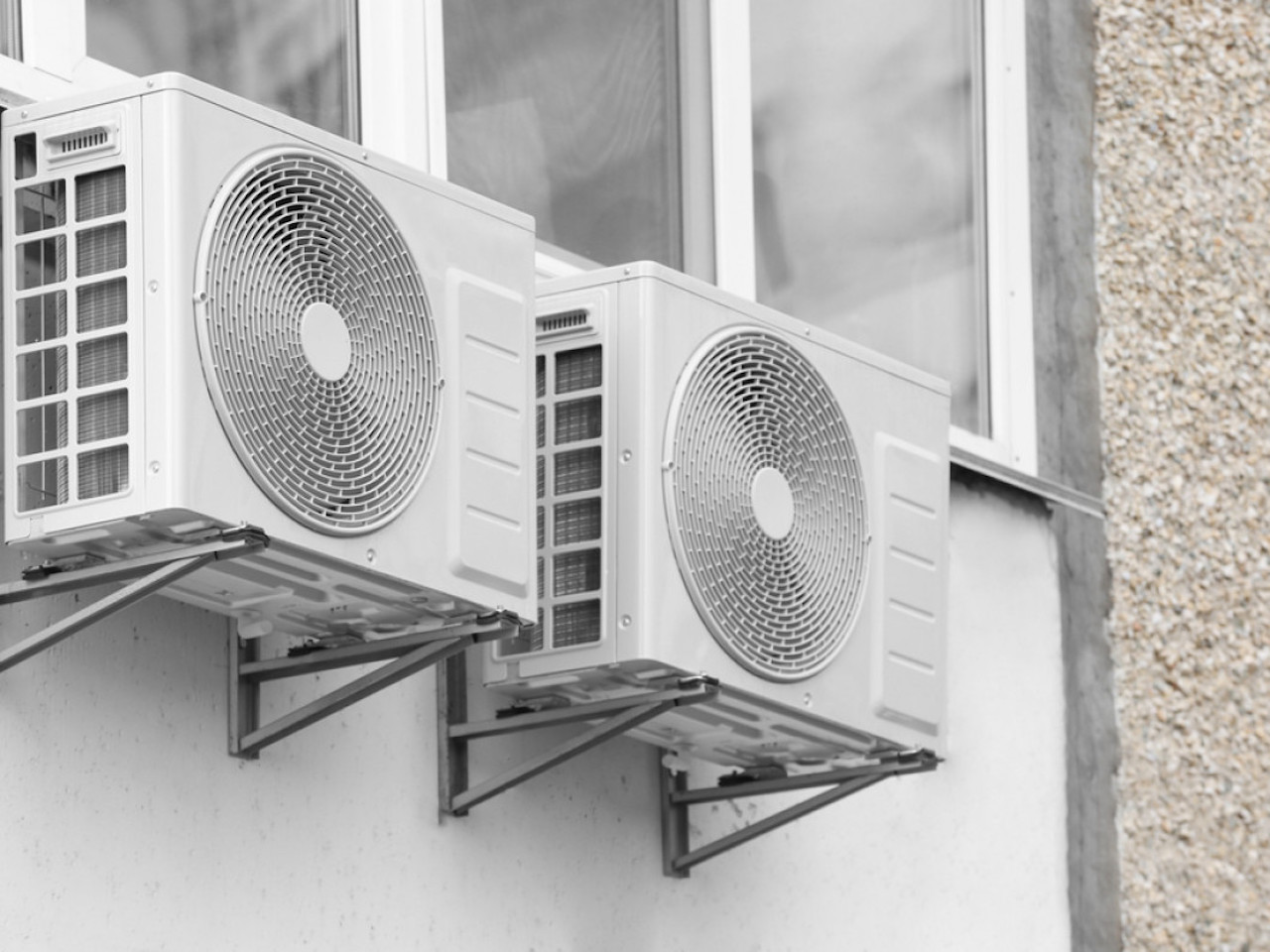
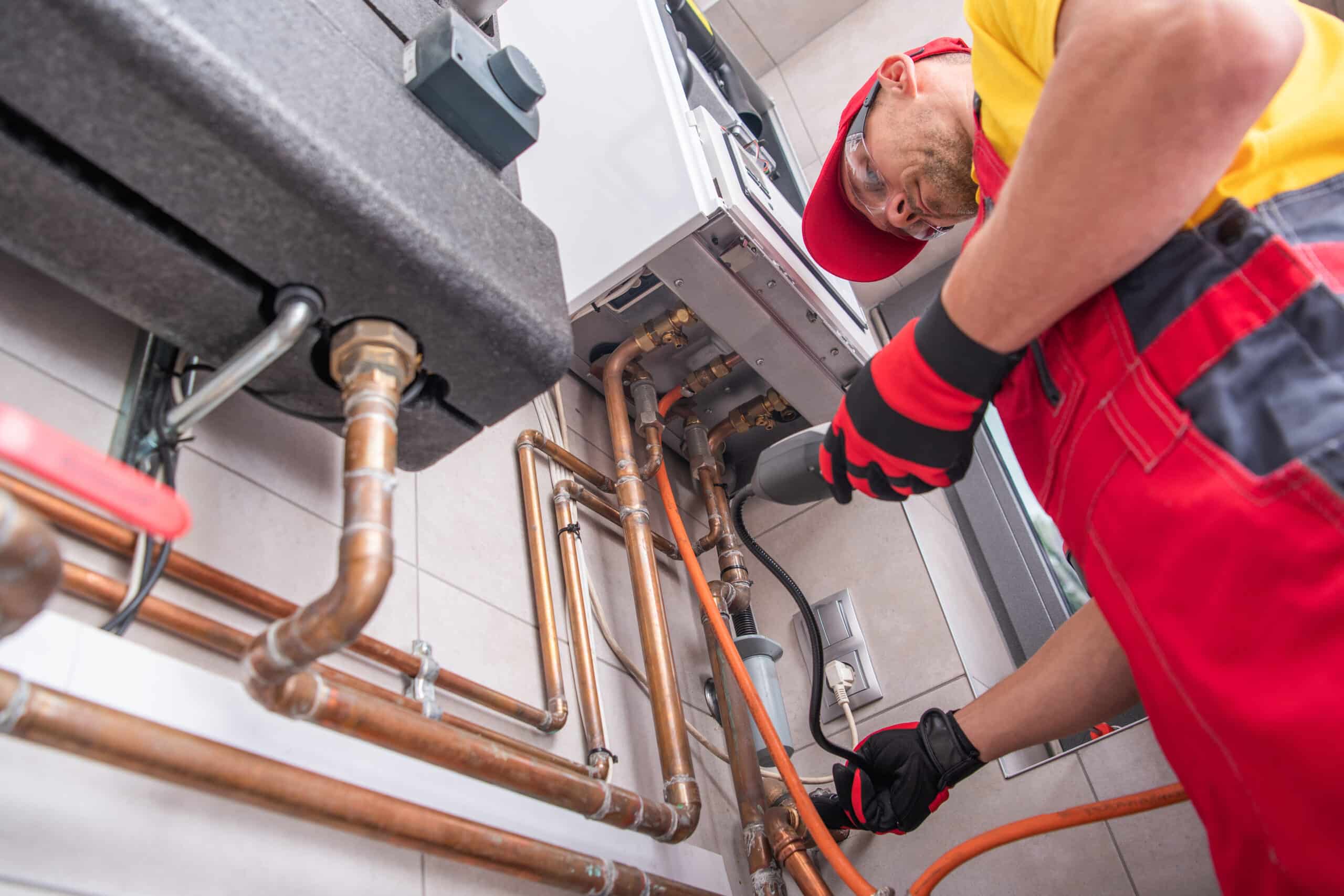
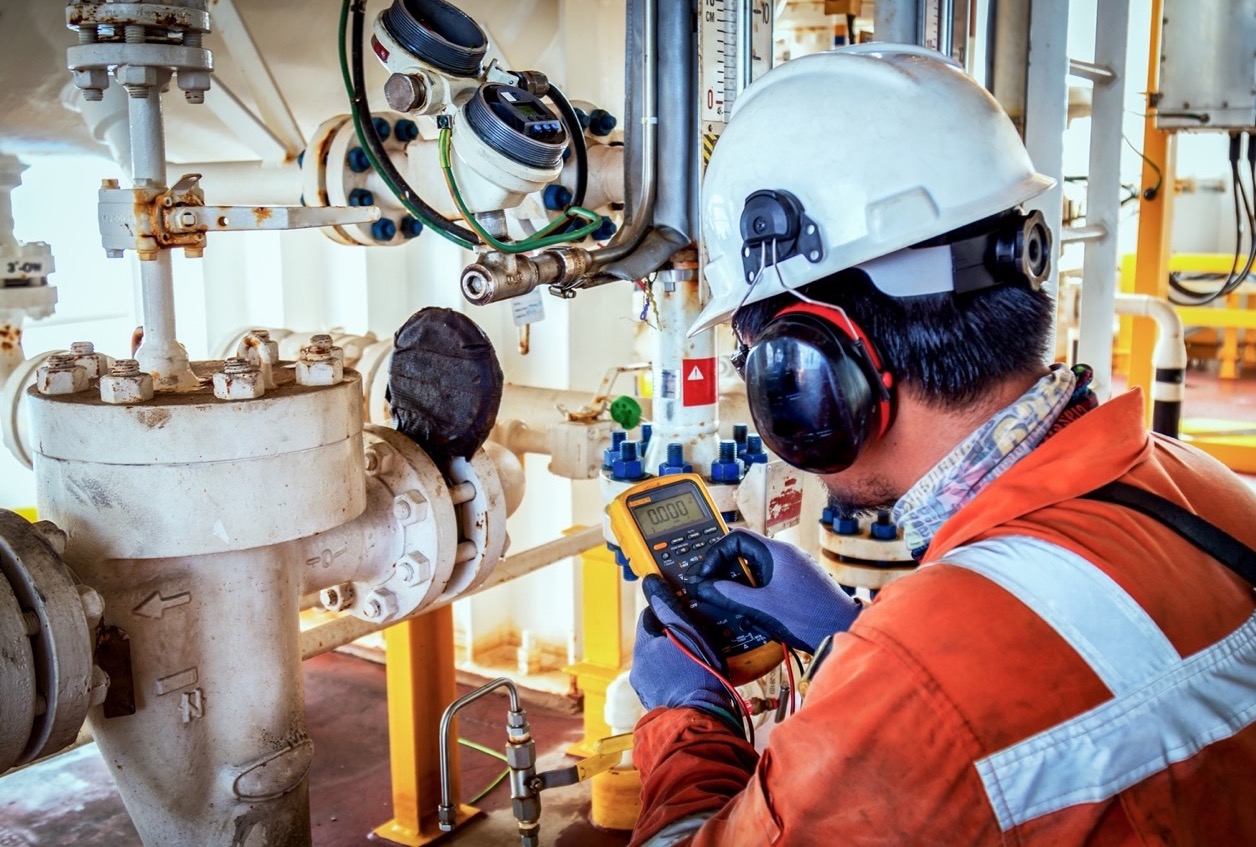
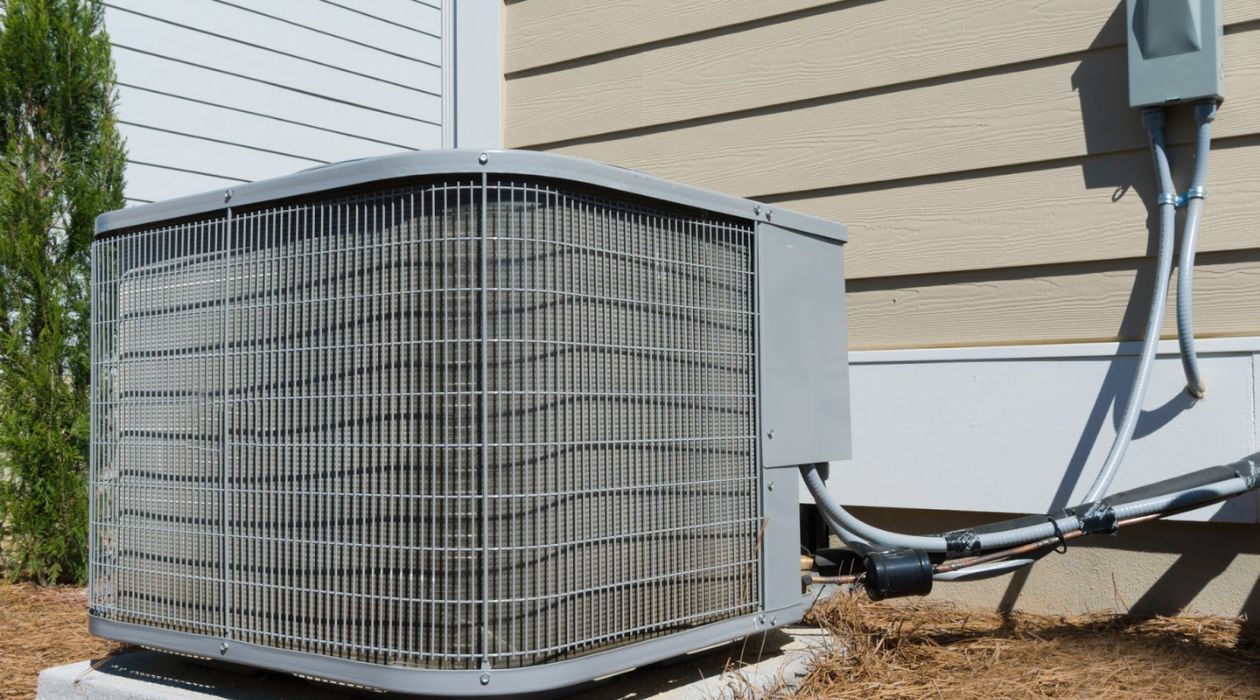
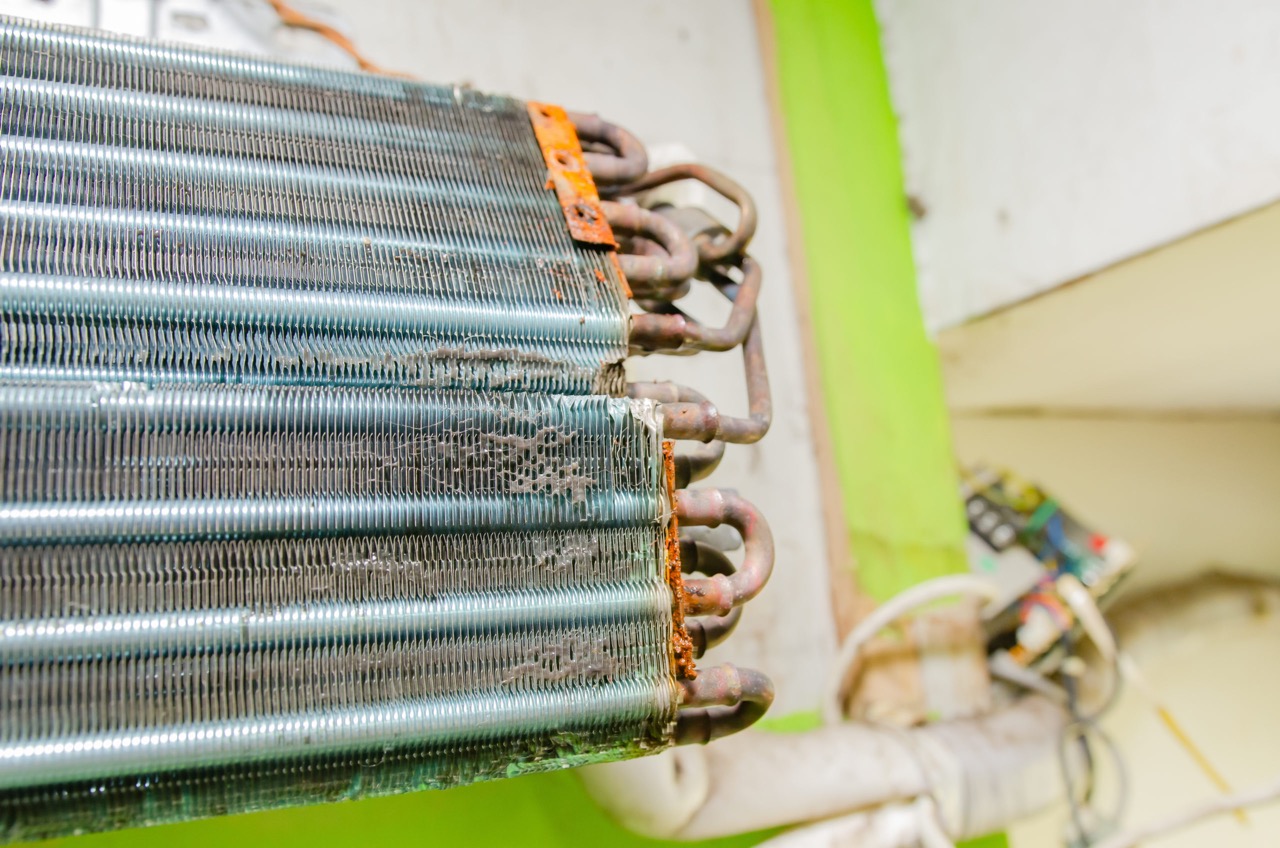
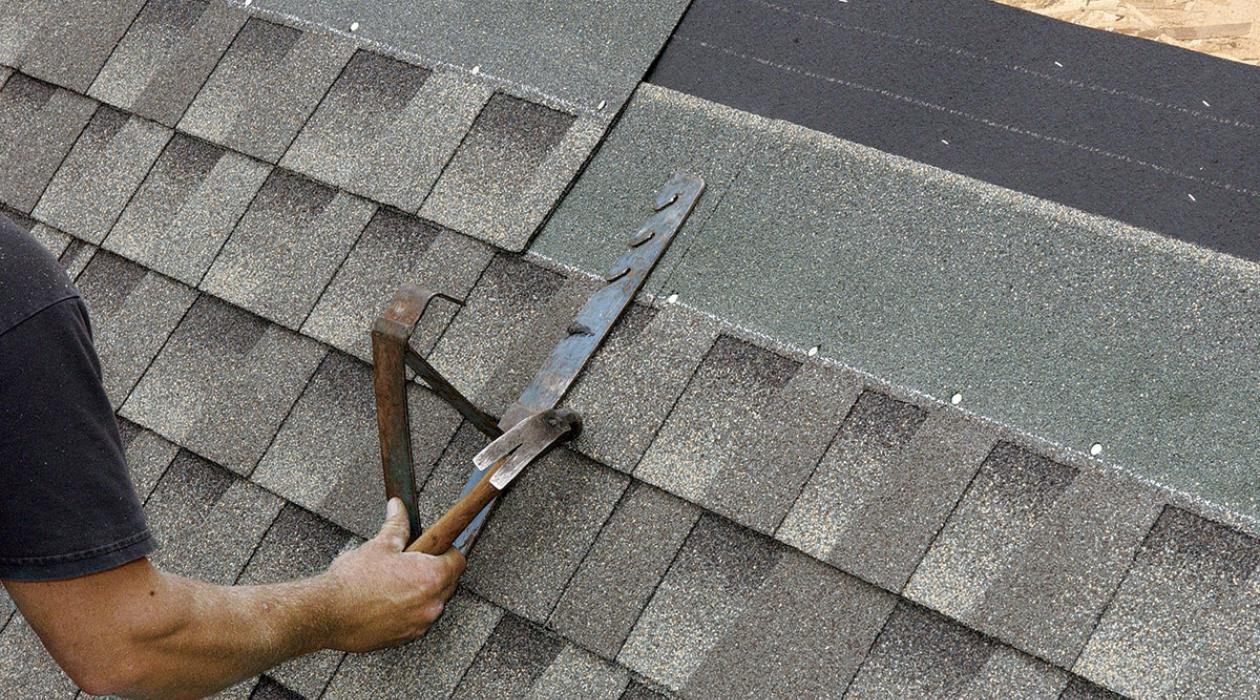
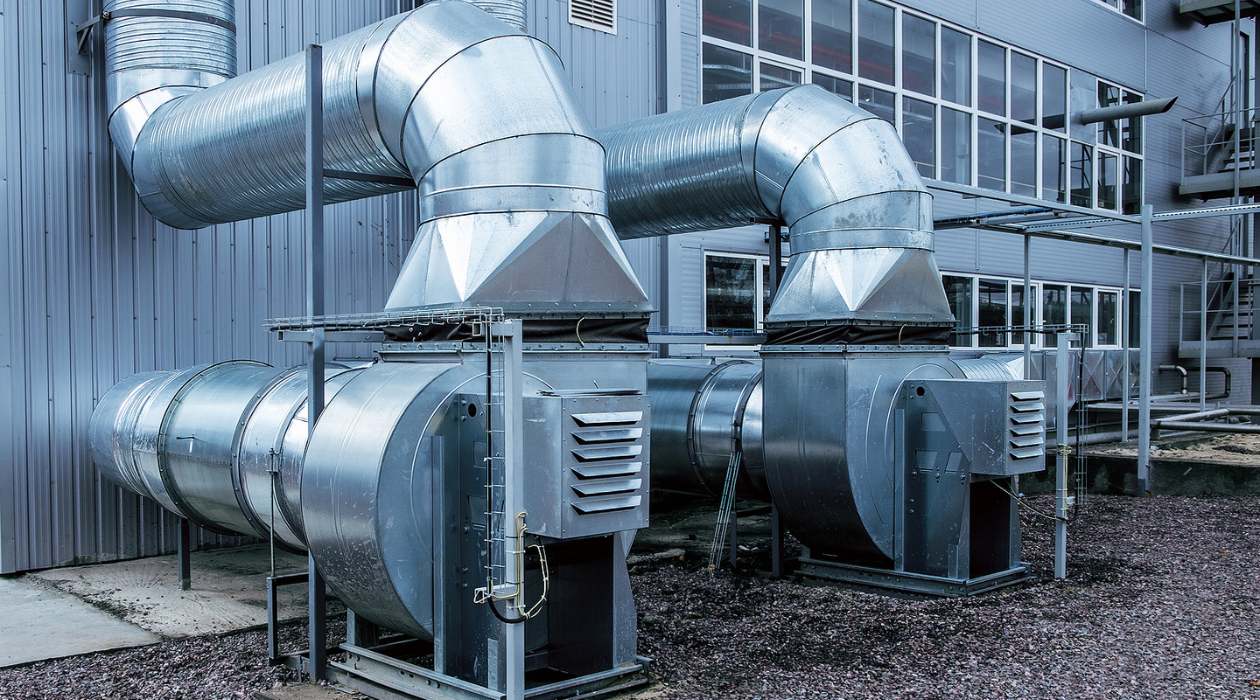

0 thoughts on “What Is A HVAC Contractor”